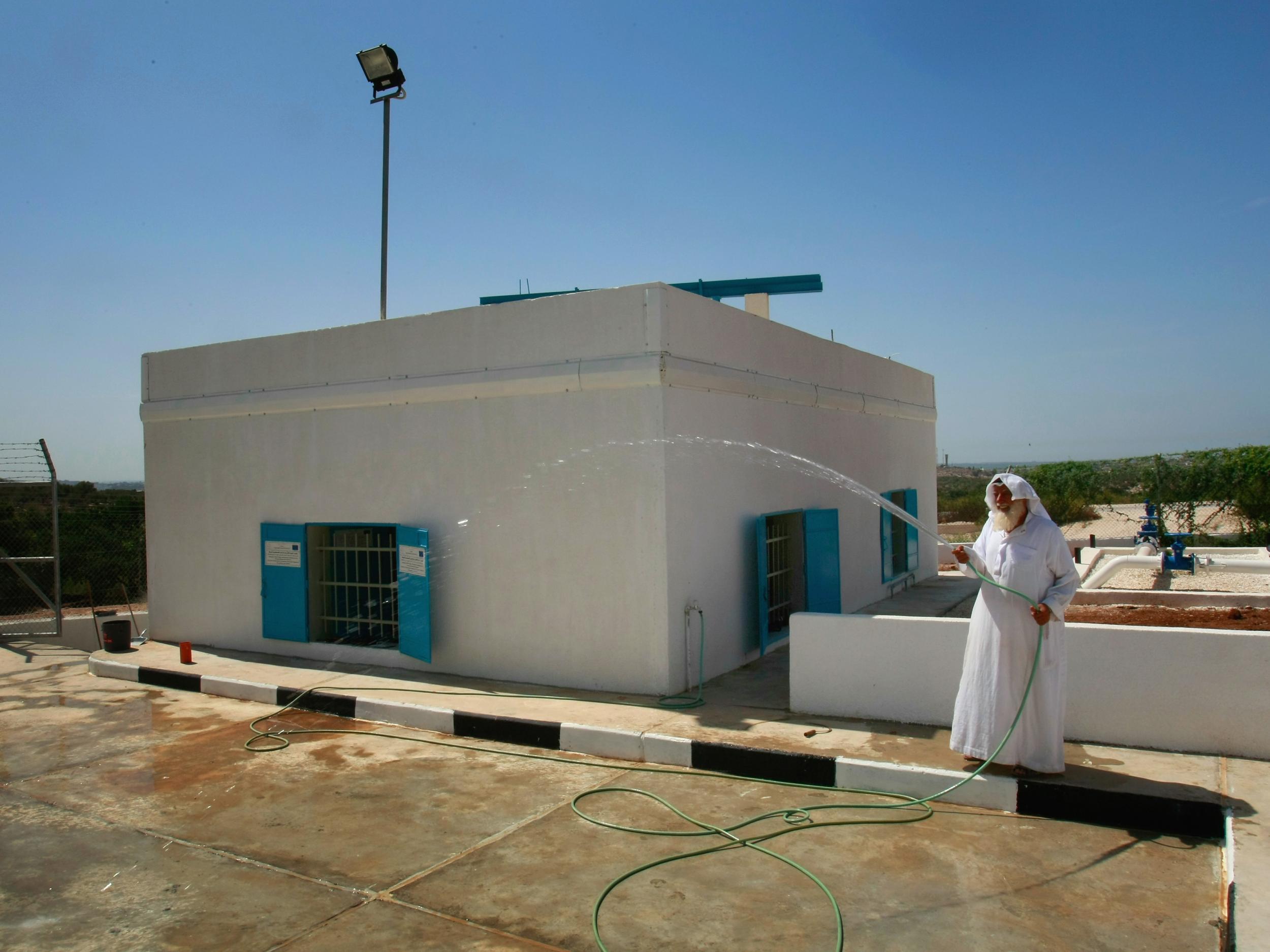Israeli minister blocks proposal to 'supply Palestinians with less water than settlers'
Water Authority argued Palestinians do not use as much water, but ministers pointed out this is not a choice, it is because their water supply is limited

A plan to give West Bank Palestinians less water than Jewish settlers has been blocked by Israeli ministers, immediately after it was proposed by the Water Authority.
Under the scheme, Palestinians would have been given 40 per cent less water per person than settlers, between now and 2050.
But the proposal was not well received at the National Infrastructure, Energy and Water Ministry, where chief minister Yuval Steinitz swiftly rejected the idea as "unacceptable".
Mr Steinitz told Water Authority representatives that international law requires water to be supplied to residents in a non-discriminatory manner, the Marker reported.
According to the plan, between 2015 and 2030 the state-run Mekorot Water Company would increase the water it supplies to West Bank Palestinians from 45 cubic metres per person per year to 60 cubic metres. For the period between 2030 and 2050, the model projected increasing supplies again, but only to 65 cubic meters per person.
60 cubic metres per year is equivalent to about 164 litres per day. Currently, West Bank Palestinians consume an average of 70 liters of water per person each day, whereas settlers use 300 liters. The World Health Organisation recommends a minimum consumption of 100 litres to ensure basic needs are met and health problems do not arise.
When Mr Steinitz criticised the plan, which was presented at a meeting in September, Water Authority officials reportedly countered that Palestinians are currently not consuming even 45 cubic meters of water per capita a year, Haaretz reported.
Water supply in the region, which suffers from natural shortages, is an extremely contentious topic.
Mekorot imposes annual summer cuts that decrease the pipeline supply by over 50 per cent and often last into the autumn.
In the September meeting, the representative of the Coordinator of Government Activities in the Territories said limited water consumption by Palestinians was the product of limited supply of water by Israel, not low demand.
He also rejected the argument that the Palestinian Authority, which controls all the major West Bank cities and considerable territory between them, should be responsible for ensuring water supplies.
At that point, Mr Steinitz is said to have ended the discussion and asked Water Authority representatives to return with a revised plan, Haaretz reported.
Tales from the West Bank: Palestinian Raja Shehadeh chronicles life during occupation
Show all 8The issue of water distribution is likely to become more pressing for both communities inhabiting the dry region – the same Mekorot proposal predicts that the Arab population of the West Bank will grow from 2.1 to 6.3 million by 2050, and the settler population from 374,000 to 917,000.
The UN has urged both parties to stop politicising water supply, which affects the local economy, health and the environment in the West Bank.
“Water should be a source of collaboration and should bring people together. At the end of the day, they all share the same water resources,” Gregor von Medeazza, chief of the water, sanitation and hygiene program at Unicef, told Israeli media earlier this month.
Subscribe to Independent Premium to bookmark this article
Want to bookmark your favourite articles and stories to read or reference later? Start your Independent Premium subscription today.

Join our commenting forum
Join thought-provoking conversations, follow other Independent readers and see their replies